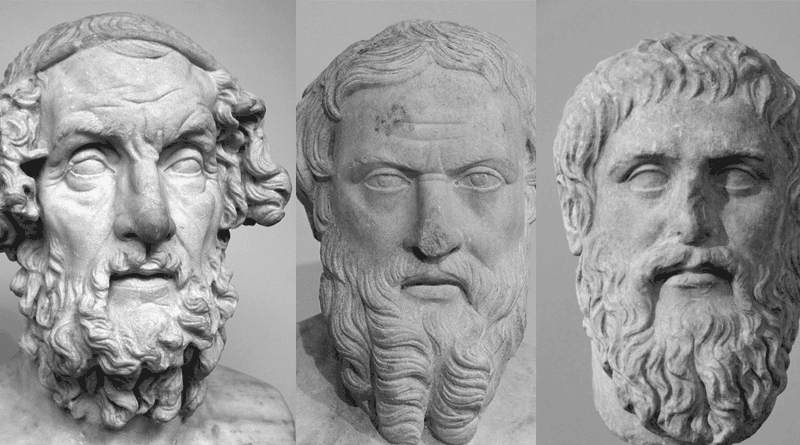We Should Maybe Take A Timeout On This One

Anybody who has heard any presentation or read any treatment of any size about NT manuscripts has probably seen the comparison of NT manuscripts with classical manuscripts.
Most famously, on page 38 of Josh McDowell’s New Evidence that Demands a Verdict, he reproduces this (probably now infamous) table:
| Author/Books | Date Written | Earliest Copies | Time Gap | No. of Copies |
| Hindu Mahabharata |
13th cent. B.C. | |||
| Homor Iliad |
800 B.C. | 643 | ||
| Herodotus History |
480-425 B.C. | c. A.D. 900 | c. 1,350 yrs. | 8 |
| Thycydides, History |
460-400 B.C. | c. A.D. 900 | c. 1,300 yrs. | 8 |
| Plato | 400 B.C. | c. A.D. 900 | c. 1,300 yrs. | 7 |
| Demosthenes | 300 B.C. | c. A.D. 1100 | c. 1,400 yrs. | 200 |
| Caesar, Gallic Wars |
300 B.C. | c. A.D. 900 | c. 1,000 yrs. | 10 |
| Livy, History of Rome |
59 B.C. – A.D. 17 |
4th cent. (partial) mostly 10th cent. | c. 400 yrs. c. 1,000 yrs. |
1 partial 19 copies |
| Tacitus, Annals |
A.D. 100 | c. A.D. 1100 | c. 1,000 yrs. | 20 |
| Pliny Secundus, Natural History |
A.D. 61-113 | c. 850 | c. 750 yrs. | 7 |
| New Testament | A.D. 50-100 | c. 114 (fragment) c. 200 (books) c. 250 (most of N.T.) c. 325 (complete N.T.) |
50 years 100 yrs. 150 yrs. 225 yrs. |
5,366 |
I start with Josh because I think this is probably where most people find it. But as Josh cites, it’s actually from Geisler and Nix’s A General Introduction to the Bible. (p. 408).
But Geisler and Nix didn’t find these numbers themselves. They simply produced the table, taking the data from this paragraph of Bruce Metzger’s The New Testament Documents: Are They reliable?:
Perhaps we can appreciate how wealthy the new Testament is in manuscript attestation if we compare the textual material for other ancient historical works. For Caesar’s Gallic War (composed between 58 and 50 BC) there are several extant MSS, but only nine or ten are good, and the oldest is some 900 years later than Caesar’s day. Of the 142 books of the Roman History of Livy(59BC-AD 17) only thirty-five survive; these are known to us from not more than twenty MSS of any consequence, only one of which, and that containing fragments of Books iii-vi, is as old as the fourth century. Of the fourteen books of the Histories of Tacitus (c. ad 100) only four and a half survive; of the sixteen books of his Annals, ten survive in full and two in part. The text of these extant portions of his two great historical works depends entirly on two MSS, one of the ninth century and one of the eleventh. The extant MSS of his minor works (Dialogus de Oratoribus, Agricola, Germania) all descend from a codex of the tenth century. The History of Thucydides (c. 460-400 BC) is known to us from eight MSS, the earliest belonging to c. AD 900, and a few papyrus scraps, belonging to about the beginning of the Christian era. The same is true of the History of Herodotus (c. 488-428). Yet no classical scholars would listen to an argument that the authenticity of Herodotus or Thucydides is in doubt because the earliest MSS of their works which are of any use to us are over 1,300 years later than the originals.
SIDENOTE: In fairness to Josh, he did cite Metzger directly in the original Evidence That Demands A Verdict.
So this raises an uncomfortable fact: the oft repeated numbers about classical manuscripts are about 50 years old.
But an old claim, by itself, is not a false claim. So is the data wrong?
I’m no classical scholar, so I couldn’t speak to the manuscript traditions, but it is worth noting, by way of an illustrative sample, that the very least , the Livy claim is wrong. Metzger/Geisler/McDowell claim that there are only 19 manuscripts of Livy dating after 1000 A.D. But the Blackwell A Companion to Livy claims there are 200 of the first decade (p. 5) and 170 of the third decade (p. 9) and 1 for the fifth decade (p. 17).
So if we total those manuscripts up to 371 manuscripts (though we should probably ask what we mean by “manuscript” when there’s evidence for as many as 150 books but extant manuscripts for only 24 of them), then we could conclude that the Metzger/Geisler/McDowell number is off by 352.
To be clear, it doesn’t actually change the substance of the argument: there is still no contest between manuscript traditions of the NT and Livy. But until we get much fuller explanations and citations for these numbers, we should maybe take a timeout on this one.

Member discussion